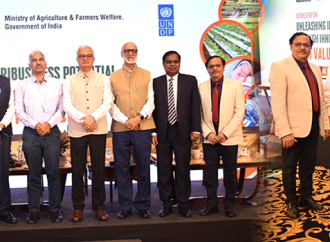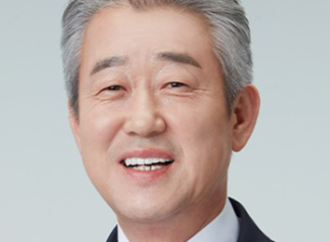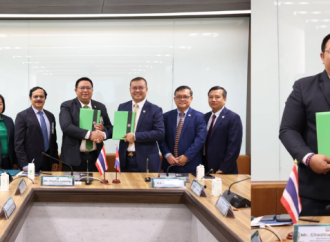Your Royal Highness, Princess Maha Chakri Sirindhorn, Dr Supachai Panitchpakdi, Secretary-General of UNCTAD, Excellencies, Distinguished guests, Ladies and gentlemen, On behalf of the Director-General of FAO, Jacques Diouf, my colleagues and on my own behalf, I have great pleasure to welcome you to the World Food Day Regional Observance. We are
Your Royal Highness, Princess Maha Chakri Sirindhorn,
Dr Supachai Panitchpakdi, Secretary-General of UNCTAD,
Excellencies,
Distinguished guests,
Ladies and gentlemen,
On behalf of the Director-General of FAO, Jacques Diouf, my colleagues and on my own behalf, I have great pleasure to welcome you to the World Food Day Regional Observance.
We are honoured by the presence of Her Royal Highness, Princess Maha Chakri Sirindhorn. We are grateful to Your Royal Highness for your gracious acceptance of our invitation. We are also very privileged to have the Secretary-General of UNCTAD, Dr Supachai Panitchpakdi, who is with us today as our keynote speaker.
The World Food Day this year came with one of the worst floods in recent history of Thailand. I wish to express, on behalf of FAO, our deep condolences to families who lost lives, assets and suffer from social and economic losses. I also wish to convey our special appreciation to those who devoted to control floods and made today’s World Food Day possible.
Ladies and Gentlemen,
Despite of our efforts and rapid economic growth in past quarter century, the world was still a home of 925 million chronic hunger people as at last year, which increased by 9 percent from the level in 2006-08. It stood at 16 percent of the world population and was far behind of the MDG goal of 10 percent promised to achieve by 2015. Asia and the Pacific Region, which recorded the highest economic growth in past decade, accounted 62 percent, remind to house nearly two thirds of the world chronic hunger population. A question arises who gained the benefit of remarkable economic growth that Asia has achieved? It appears that the economic growth centred national development often under minded the importance of equitable growth and social protection to those who were left behind of the benefit. In deed, it resulted in widening disparity and inequality between the rich and the poor in many countries in Asia.
This year, FAO selected “Food Prices: from crisis to stability” as a theme for the World Food Day. This comes at a time when food prices continued to high and volatile, and when the world economy is slowing down, shattering the hopes of hundreds of millions of people living in poverty and hunger. In deed, the food price hike and volatility are the added main causes of hunger, in addition to the consequences of poverty. The poor suffered most from the food price increase who spent the vast bulk, as high as 70 percent of their household income on food. Thus, even gaining the same income, the food price increase of 20-50 percent would result in catastrophic consequences. FAO’s food price index rose to its highest level in the history at 238 point in February this year, which was 28 percent higher than one year ago, but since then it kept slightly less but remained almost similar level until today. Retail price of rice, for example, increased by nearly 20 percent in past one year in many countries including Thailand, which also led to higher national inflation.
High food prices are often resulted in increasing frustration of consumers and are also affecting middle income countries, as symbolized in incidents seen in Tunisia and Egypt. The possibility of social and political unrest caused by high food prices cannot be ruled out. Controlling high and volatile food prices should thus not be treated as a question of justice, but also as a fundamental requirement for political and social stability.
According to ESCAP report, the high food prices in 2010 prevented over 15 million people in this region to get out of poverty and have pushed additional 3.7 million people into below poverty line. Thus, it also increases number of poverty. The high food prices would likely remain or remain unpredictable in coming years, to say the least.
Your Royal Highness,
In addition to present short term food insecurity challenges resulted from high and volatile food prices, the world is facing another serious medium to long-term challenge. In deed, to feed growing world population which is projected to reach 9.1 billion by 2050, world is expected to increase food production by 70 percent ( 100 percent in developing country alone) in next 40 years. This has to be attained under existing constraints such as:
Rapid increase of demand of food grains for human consumption, animal feeds and bio-fuel, and tightening food supply-demand balance;
Decline or stagnation of crop productivity growth, especially rice and wheat resulted from sharp decline of investment in agriculture including agricultural research in past three decades;
Soaring crude oil price which increased over 4 times in past decade, and is pulling up the price of bio- ethanol and food grains especially maize, and production cost of agricultural commodities due to cost increase of chemical fertilizer, irrigation and transport;
Unpredictable policy measures such as export restrictions and trade distortions by some of food exporting countries;
Increasing interest in food commodity trade and speculations, and lack of regulatory framework to control speculations beyond acceptable limit;
Scarcity of water and stagnation of the growth of arable land; some of Asia countries such as China and Vietnam already started to decline;
Increasing competition of land and water between food crops and bio-energy crops ;
Increasing the frequency of occurrence of natural disasters (doubled in past decade in Asia) and negative impact of climate changes.
These are the challenges which we have to overcome together to enable to feed our children and future generations. Otherwise, social and political stability would be compromised and world security would be threatened.
Ladies and gentlemen,
FAO has been placing its top priority to promote food security and initiated various measures which include:
- Launching the Initiative on Soaring Food Prices in December 2007 and helped distribute key inputs such as fertilizer and seeds to poor farmers in more than 10 countries in the region to produce more foods and enhance their income;
- Monitoring food prices of key commodities at country level, and producing and distributing monthly and weekly food price information and analysis;
- Organizing regional, sub-regional and national forum and consultations for policy and programmatic actions to address high food prices;
- Formulating Agricultural market Information System (AMIS) and Global Strategy to Improve Agriculture and Rural Statistics in HQs, and linking it with regional action in collaboration with ESCAP and ADB, and host the secretariat in the regional office;
- Promoting regional collaboration and cooperation among UN Agencies and development partners on food security and nutrition, including signing partnership agreement with ADB, IFAD, and expanding it to other agencies including WFP, World bank and ICARDA;
- Promoting partnership with private sector and the Asian Football Confederation (AFC) to promote a football against hunger campaign;
- Promoting FAO’s field programme and mobilizing resources to implement food security and related projects which was doubled to the delivery level of US$ 250 million (including emergency projects) in 2010 from that of 2009.
In addition, FAO is actively working with the G20 agriculture ministers’ Action Plan on food price volatility and agriculture. In broad terms, the Action Plan calls for increasing agricultural production and productivity, increasing market transparency, developing mechanisms to help the poor and vulnerable cope with high and volatile food prices, and strengthening international policy coordination and financial market regulation.
We have huge tasks ahead of us to accomplish. I fully believe that we can attain the goal if we are united, and work together in partnership..
Your Royal Highness,
On this occasion, please allow me to share good news. After your advice, we conducted an in depth assessment and analysis, jointly with the Office of Agriculture Economics (OAE) and other agencies on the propotion of undernoulished population in Thailand. We found that there were some missing items in food basket and unfamiliality in calculation. After all adjustments, we are now confident that Thailand’s undernoulishment figure would change from present 16 percent to less than 10 percent shortly.
Ladies and gentlemen,
Finally, to conclude my speech, I wish to think about food and food security once again. There are nearly one billion people on the planet suffering from chronic hunger due to lack of adequate food. And almost the same numbers of nearly one billion people suffer from over weight, naturally resulted from over intake of food. In deed, there are people who have plenty of food, and contrary, there are people who do not have enough food and suffer from malnutrition or go to bed with empty stomach. We were born as a same human being and living on a same earth. We are dependent each other for our lives, security, safety, health, and so on, irrespective of our status. And most importantly, food is the most essential human right. All of us have a right to access adequate and nutritious food, irrespective of young or old, and rich or poor.
On the occasion of World Food Day, I wish to express the importance of promoting global awareness on the importance of food, and creating a sense of strong solidarity at all levels including school children to help each other , to help those suffering from hunger,
It is our duty to produce more food at an affordable price to meet the nutrient requirement of all citizens in the planet, including those left behind by economic growth, and of our children and future generations to come.
Thank you for your attention.















